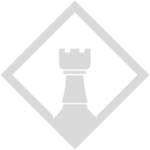Introduction
In today's fast-moving world, the cognitive demands placed on individuals have increased exponentially, making task management andtime organization more complex. Digital tools, such as project management applications and note-taking software, have emerged as powerful allies in this field, effectively serving asextensions of our cognitive abilities. However, it is crucial to consider both the potential advantages and disadvantages of reliance on these digital tools.
External brain: digital knowledge management

The human brain, while remarkable, has limits when it comes to storing and retrieving information. Digital tools function as external memory systems, enabling digital knowledge management. Note-taking applications with advanced search capabilities, such as Notion, Evernote and Obsidian, help to organize ideas, manage references and create personal knowledge bases. These systems reduce cognitive load by externalizing the effort of memorization, allowing the mind to focus on understanding and creating rather than simply retaining information. For example, a University of California study showed that using digital note-taking tools can improve information retention and productivity by up to 20% (Source: University of California, 2022). A young genius by the name of Eliot Meunier has published an excellent book on how to optimize your note-taking and create a second brain. Stop forgetting what you read!
Managing attention in a distracted world
Our increasingly connected environment presents constant demands for attention, making concentrated work increasingly difficult. Productivity technology offers attention management tools to help improve concentration. Website blocking apps, notification blocking apps and Pomodoro timers are designed to create a mental space conducive to in-depth work. These tools create the mental space necessary for meaningful productivity in a landscape of fragmented attention. However, it's important to recognize that over-reliance on these tools can sometimes lead to a false sense of productivity, where individuals can feel productive without actually achieving meaningful results.
Automating cognitive overload
Much of what occupies our mental bandwidth is not complex creative or analytical work, but rather the management of routine tasks and repetitive processes. Technology excels inautomating repetitive tasks and reducing cognitive overload. Task management systems help to ensure that nothing is forgotten, while intelligent calendar applications facilitate time planning. The GTD method (Getting Things Done) provides us with 5 best practices to adopt to boost productivity.Email automation and automated document creation free up mental resources for higher value-added activities. However, automation can also introduce new challenges, such as the need to regularly maintain and update these systems to keep them running efficiently.
Extended intelligence thanks to AI integration

The integration ofartificial intelligence into productivity tools represents a quantum leap in the way technology supports cognitive work. AI writing assistants help articulate thoughts more clearly, AI search tools help synthesize information across different sources, and intelligent messaging systems enable email prioritization. These tools don't just automate routine tasks, they actively enhance our thinking skills. An AI research assistant can identify connections between ideas that might be missed, while an intelligent writing tool can suggest more precise language to express a complex concept. This collaborative intelligence between human and machine creates possibilities beyond what each could accomplish alone. However, there are also ethical considerations and potential biases in AI algorithms that need to be addressed to ensure fair and unbiased results. Read also: From performance to excellence: the keys to transforming a good company into an exceptional organization Balancing benefits and challenges
While digital tools offer significant advantages, it's essential to recognize the potential drawbacks. Over-reliance on technology can lead to a decline in natural cognitive abilities, such as memory and problem-solving skills. In addition, there are privacy concerns associated with storing personal information in digital systems, as data breaches and unauthorized access can pose significant risks.
What's more, the constant connectivity and notifications of digital tools can contribute to increased stress and burnout. A study by the American Psychological Association found that excessive use of digital devices can lead to higher levels of stress and anxiety (Source: American Psychological Association, 2021). Therefore, it's crucial to strike a balance between using digital tools for productivity and maintaining healthy boundaries to avoid negative impacts on mental health.
Future prospects
The relationship between technology and productivity represents a fundamental shift in human capabilities. Rather than seeing digital tools as mere commodities, we might better understand them as cognitive prostheses-extensionsof our mental capacities that enable us to think, create and organize on previously impossible scales.
As these technologies continue to evolve, integrating more sophisticated artificial intelligences and adapting to individual cognitive styles, they promise to further expand the boundaries of personal and organizational productivity. However, this evolution needs to be accompanied by careful consideration of the ethical, privacy and mental health implications to ensure that the benefits outweigh the potential drawbacks.
Conclusion
Digital tools offer immense potential for improving productivity and personal organization. By recognizing and addressing the challenges associated with their use, we can harness their full potential while mitigating the risks. The future of productivity lies in balancing technological advances with human well-being, ensuring that we use digital tools responsibly and effectively.




